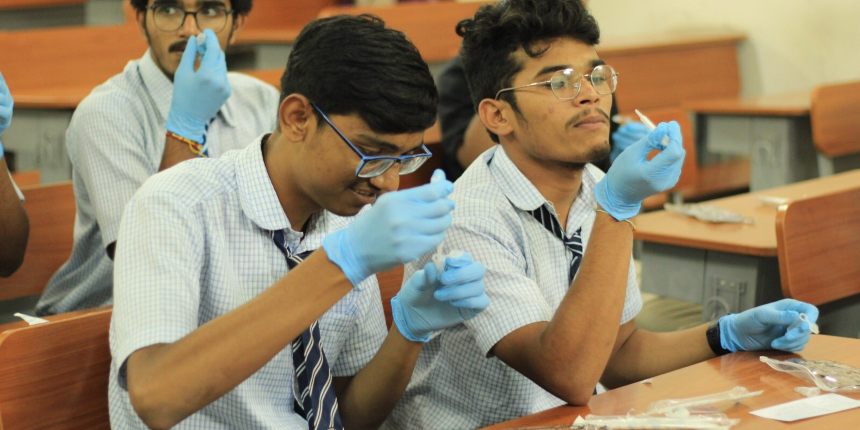Kerala SSLC Exams: Students will need ‘subject minimum’ scores in theory papers from 2026-27
Atul Krishna | August 7, 2024 | 04:25 PM IST | 2 mins read
Students must score a ‘subject minimum’ to pass Class 10, Kerala’s general education department said. Class 8 will have pass marks from 2025-25; Class 9, from 2025-26.
Kerala SSLC 10th Question & Sample Papers
Download Kerala SSLC 10th Question & Sample Papers to practice effectively, understand exam format, improve preparation, and boost confidence for board success.
Download Now
NEW DELHI: Students appearing in the Class 10 Secondary School Leaving Certificate (Kerala SSLC) exams will have to score minimum marks in each subject from the academic year 2026-27 onwards to clear the exams, the general education department said on Wednesday. The ‘subject minimum’ – also known as “board exam pass marks” – for theory papers will also be introduced in Class 8 from this academic year, 2024-25, and in Class 9, from 2025-26.
The department also said that in case a student fails to get the minimum marks in a subject they will be allowed to reappear for the exams within two weeks. It said that the move is aimed at improving the academic quality in the state and that there is “no agenda to fail students”.
The decision was taken after an educational conclave held by the State Council of Educational Research and Training (SCERT) on May 8.
In June, The Kerala general education minister V Sivankutty, responding to a Legislative Assembly question in June, had called for the introduction of subject minimum to improve the academic quality of students studying in Kerala government schools.
The minister said that currently students only require five to 10 marks in the Kerala SSLC results to clear due to a lack of subject minimum or theory exam pass marks as a requirement. The Kerala SSLC exams are conducted by the Kerala Board of Public Examinations.
Improvement in Kerala government schools
The Kerala general education department said that district conclaves will be held in the coming months, involving district education officers, parents, teachers and academic experts, on improving the academic quality in schools.
Earlier, an analysis by PARAKH, a unit of the National Council of Educational Research and Training (NCERT), found the Kerala Board of Public Examinations to be one of the worst performing school boards in two parameters– administration and infrastructure. However, it performed well in assessments.
The analysis also found that the board has one of the highest percentage of ‘medium difficulty’ questions which accounted for 73.08% of all questions. Both ‘easy’ and ‘hard’ questions accounted for 13.46% of the questions.
Follow us for the latest education news on colleges and universities, admission, courses, exams, research, education policies, study abroad and more..
To get in touch, write to us at news@careers360.com.
Next Story
]Haryana board requires most ‘recall’, UP board most ‘understanding’: NCERT PARAKH on state board questions
NCERT PARAKH’s analysis of private and state board question papers compares difficult levels – easy, medium or hard – and whether questions require rote learning. Find out which boards set the hardest and easiest question papers.
Atul Krishna